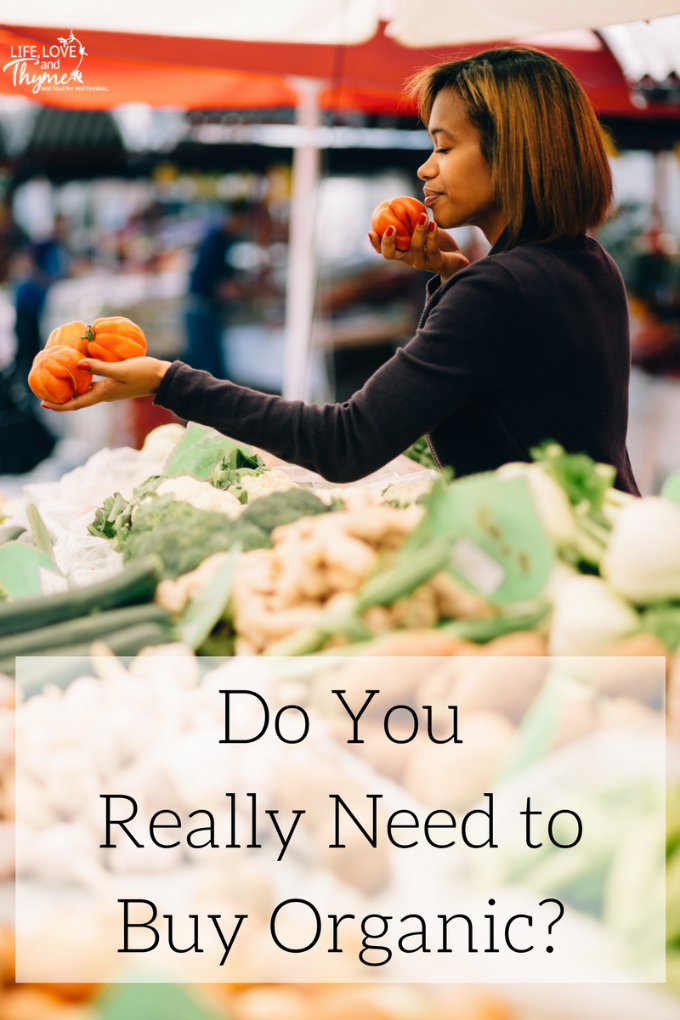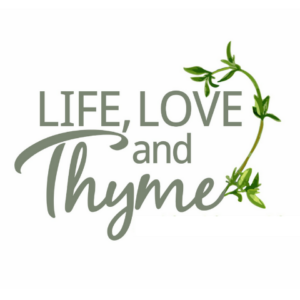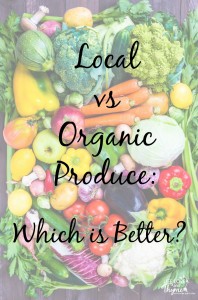The quality of the foods you eat counts just as much as the quantity. Low quality foods are not just what you normally think – highly processed, refined carbs and sugars. Fruits and vegetables can also be low quality, but do you really need to buy organic?

Buy Organic?
Many of the fruits and vegetables we consume are from conventional farms where the seeds are genetically modified (GMO) to be resistant to bugs and chemicals. This is good for the farmer by increasing his/her yield, but the effects of consumption by humans and animals of these genetically modified products has not been extensively studied.
Most conventional farms also spray pesticides on their crops to kill insects. These chemicals may be soaked into the fruits and vegetables and become part of their skin. When you ingest these foods, the chemicals then become part of you.
Not only do the farming practices affect the quality of your food, but also the time it takes for your food to reach your table. It is estimated that food travels 1500 miles before it arrives on your plate. The longer the time from harvest to consumption, the lower the nutrient value of the food. Therefore, it is important to consume fruits and vegetables as soon after harvest as possible.
The best option for fruits and vegetables is eating locally grown organic foods, but sometimes this is not always possible or feasible. So what should you do?
Produce Buying Hierarchy
Local, organic, non-GMO
Local
Organic, store bought
Local, conventional
Dirty Dozen/Clean Fifteen
Also there are some foods where organic may not matter due to the thickness of the skin – according to the EWG “clean 15” list: sweet corn, avocados, pineapples, cabbage, onions, frozen sweet peas, papayas, asparagus, mangoes, eggplant, honeydew, kiwifruit, cantaloupe, cauliflower and grapefruit.
The EWG also has a list of foods they call the “dirty dozen”. These foods have the most pesticide residue and are most important to buy organic.
The dirty dozen: strawberries, spinach, nectarines, apples, peaches, celery, grapes, pears, cherries, tomatoes, sweet bell peppers and potatoes.
Be sure to visit localharvest.org to find the farmers market nearest you!
Do you shop at farmers markets?






